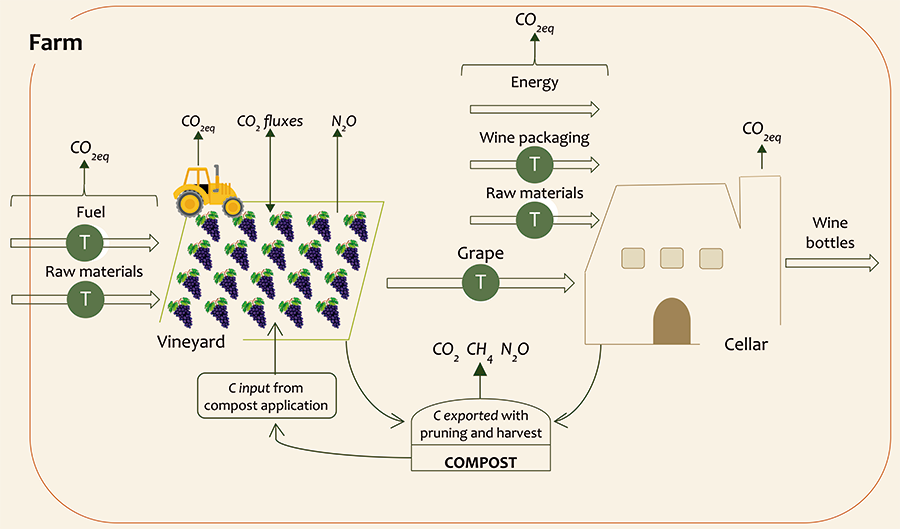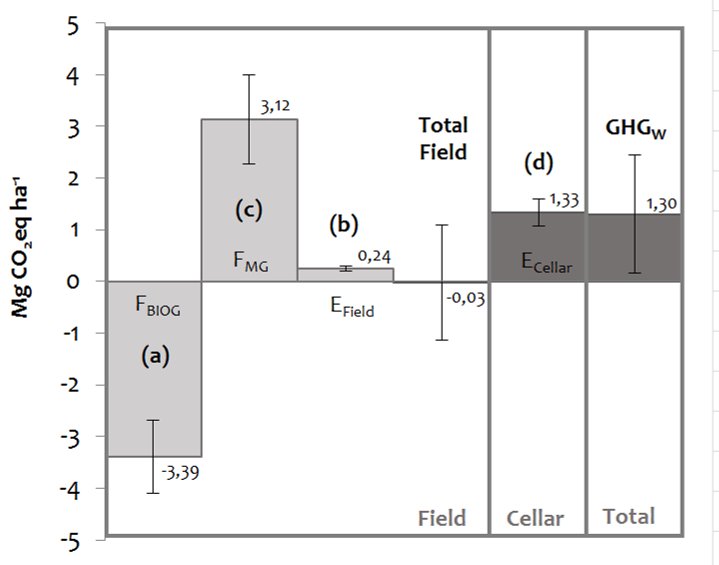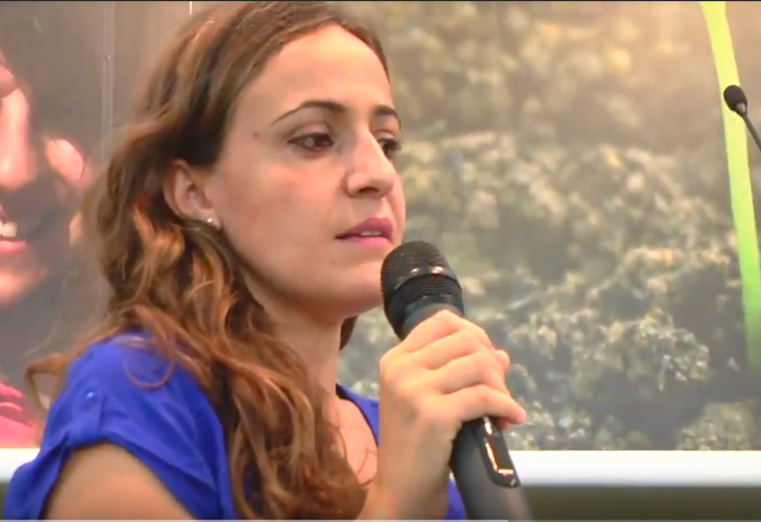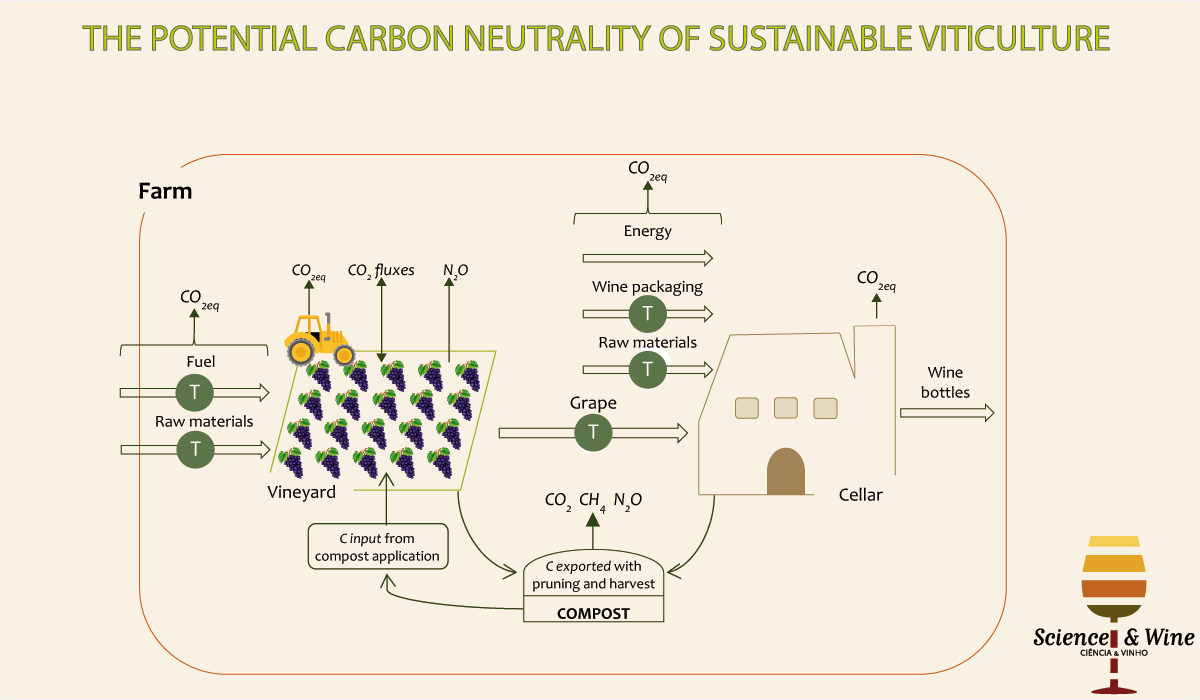By Maria Vincenza Chiriacò
A just published study on Journal of Cleaner Production show the potential carbon neutrality of sustainable viticulture https://authors.elsevier.com/a/1YsBU3QCo9Uqz4
The study aims to quantify the actual impact on climate in terms of greenhouse gas (GHG) emissions of sustainable practices applied to a grape-to-wine system in Italy.
For this purpose, the overall budget of greenhouse gas (GHG) fluxes is assessed at wine farm level (Figure 1), from the vineyard to the final bottle of wine, through an integration of methods, including the eddy covariance technique, the life cycle assessment (LCA) and the IPCC guidelines. All the components of the GHG budget have been considered: the (a) biogenic GHG fluxes and the (b) anthropogenic GHG emissions generated for the grape production as well as the (c) carbon stock change due to the vineyard management and the (d) anthropogenic GHG emissions generated by the transformation of grape into wine. The results (Figure 2) demonstrate that sustainable vineyard management can generate negative biogenic emissions (-0,27 Mg CO2eq per year per hectare) in soils and biomass, able to completely compensate anthropogenic emissions from the agronomic management (0,24 Mg CO2eq per year per hectare) resulting in a zero balance of climate-changing gases. Hence, the overall GHG budget resulted to be close to zero, showing a potential carbon neutrality of sustainable viticulture. The study asses also the carbon footprint of the sustainable wine making process till the final bottle of wine, which generates a total low impact of 0,79 kg CO2 eq per bottle.


These findings indicate that sustainable wine production has in general a lower contribution to climate change. Sustainable practices applied to viticulture can turn the system into a net carbon sink able to totally compensate the anthropogenic emissions for the vineyard management. Therefore, sustainable viticulture allows food production with a potential carbon neutrality without exacerbating climate change. A such kind of results are of fundamental importance as demonstrate that sustainable agricultural production can be able to completely cancel out the impact of agriculture on climate and open the floor on the understanding of the actual contribution to climate change provided by sustainable food production systems, a kind of information on which science need to focus. In fact, sustainable agricultural and food processing practices are often proposed as attractive strategies enabling food systems to respond to the challenges posed by climate change in terms of adaptation and mitigation. However, information on the actual contribution to climate change provided by sustainable food production systems is still lacking in literature. The study is available at https://authors.elsevier.com/a/1YsBU3QCo9Uqz4 and is free access until May 28, 2019 !

Maria Vincenza Chiriacò is graduated in Forestry and Conservation of the Environment with a PhD in Science and Technology for Forestry and Environmental Management and a II level Master in Agroforestry carbon credits market. She is a researcher at CMCC (www.cmcc.it) on topics related to the role of agro-forest ecosystems in the carbon cycle and is an expert in sustainable management of agro-forestry systems in view of mitigation and adaptation to climate change. She is also an expert of rural development policies and tools of environmental sustainability such as Life Cycle Assessment (LCA) applied to agricultural areas and farming enterprises.

